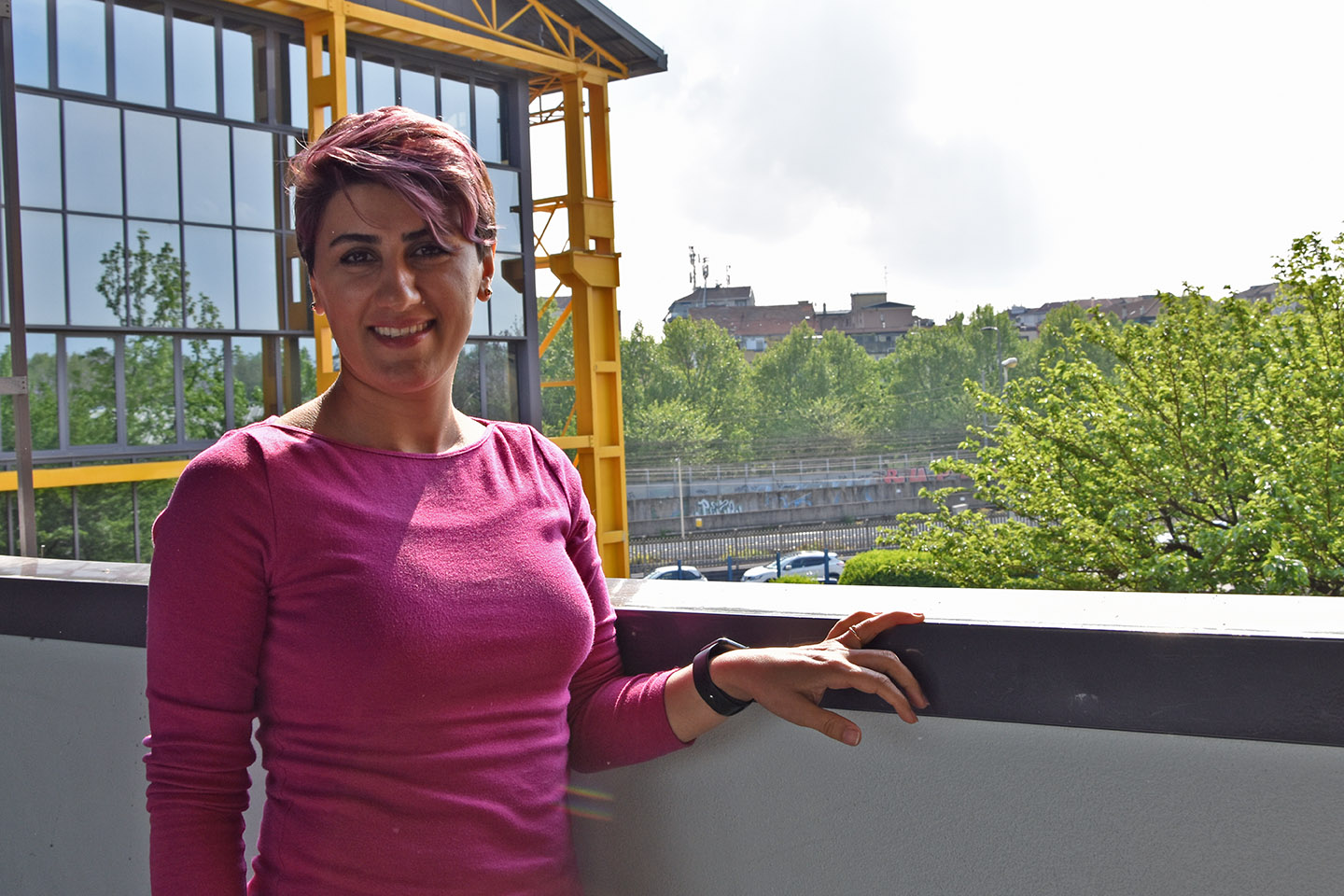Resilient EVs Infrastructure, Sustainable World
Lida Naseh Moghanlou
- Thesis title: Resilience of the system of systems made up of electric power grid, the charging infrastructure and the system of Electric Vehicles (EVs)
- PhD Tesi Supervisors: Enrico Zio, Francesco Di Maio
- Phd: STEN, 35° cycle (starting year 2019)
- B. Sc: 2011, Mechanical Engineering, Mohaghegh University (IRAN)
- M. Sc: 2014, Mechanical Engineering, Sahand University of Technology (IRAN)

Tell us something to introduce yourself
I am Lida, from Tabriz, a beautiful city with fair and fine weather in the northwest of Iran where we call it head of Iran (since Iran’s map looks like a cat, my region is like its head 😊). I started my independent life with studying in my dream field, Mechanical Engineering. Then, I have experienced different careers like teacher, R&D engineer, and quality manager which were challenging but successful episode of my life. However, my enthusiasm to acquire new knowledge tempted me to come to Milan and find the opportunity to extend my knowledge and develop my personal experience.
Tell us about your research
My research concerns the development of a framework to assess the risk and the resilience of a System of Systems (SoS) that integrates Electric Vehicles (EVs), conventional transportation network and electric power system and considers risk scenarios on the electrified transportation system. Since global warming and fossil fuel resources shortage restrict Internal Combustion Vehicles (ICVs) and at the same time, advancements in EVs technology have led to an increase of the penetration of EVs in the market, my aim in this research is to assess hazards and uncertainties of integration of EVs, power distribution and road networks. Therefore, in my work, a physical model of road-power network infrastructure is proposed to couple road network to power grid and provide an infrastructure to run EVs and ICVs on. EVs and ICVs motion is simulated to take into account their features and characteristic while moving on the road network. Then, the effects of disruptions on road-power infrastructure, a. traffic system overload (traffic delay and congestion) and b. power system overload are assessed. In the next step, economic implications of traffic delays due to the modelled disruptions is assessed. In the end, to improve the resilience of the SoS, optimal capacity, location and an adaptive charging strategy for the charging stations will be proposed since the combination of short-range capacity and unavailability of charging facilities is a barrier for EV adoption. Most electric car users are using private charging facilities at home or at work. Along with improvements in battery technology, sufficient charging infrastructure across road networks and strateghies is necessary to prompt public adoption of EVs.
What aspect of your work is most exciting you right now?
EVs are environmentally friendly and play an important roll in reducing green house gas emission and in the coming years, EVs will have a very important role in Smart cities, along with shared mobility, public transport, etc. Pluse, oil related crisis has always affected people life along the history and now days, the recent war in Ucrine reveals that depentdancy on oil as a fuel can make countries devoid of oil resources vulnerable, and at the same time countries with rich resources can misuse them as a political and economical pressure while inclusive use of EVs can significantly alleviate this problem. All of this aspects shows that electric mobility has a great potential to enhance the world, which is exciting and motivating for me.
Why did you choose to start this experience and why did you choose Polimi? (Did your expectations have become reality?)
I’ve always been aspiring to keep my knowledge up to date which PhD not only could provide me this chance but also could broaden my worldview and Polimi as a prestigious university, was one of the best options for me specially, knowing Prof. Zio as an extraordinary knowledgeable professor in the field of risk, reliability and resilience motivated me to apply for a PhD position at Polimi. It is worth mentioning that Italy is a fantastic country with great history and having some cultural and climate similarity with my home country was another attraction to come here.
How would you describe this period of your life with three adjectives?
Self-dependent; this challenging path of PhD made me more and more self-dependent.
Prosperous; I assume this period as a great launching pad to a successful future career.
Up to date; working in a scholarly ambience opens new window to state-of-the-art knowledge.
What are your plans after the end of the PhD?
I am passionate about research activities, and I try to avoid doing routine and repetitive works. As far as I can continue study and research, industry or academia are both same.
Which advice would you give to new engineers that are pondering about PhD in Polimi?
I would suggest them to use the opportunity of studying in a high rank university like Polimi to acquire new knowledge and technology and have a specific attention to interdisciplinary fields like AI, Data Science and etc.
Tell me something surprising about yourself?
I love dance! Maybe if I was born in a country with social freedoms, I would consider it as my main career!





